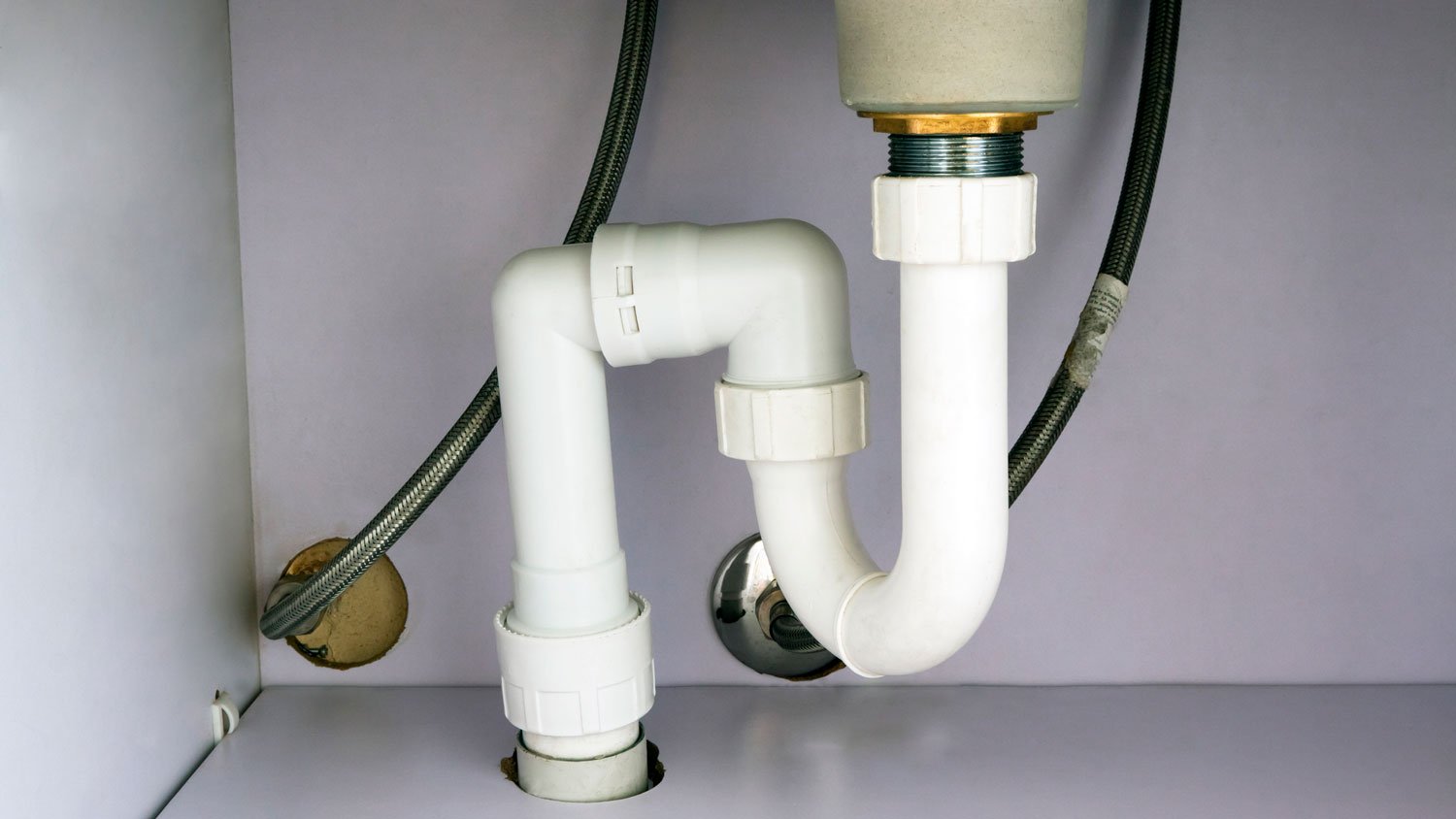
How much does a septic system cost in Portland, OR? Explore impacting factors, important add-ons, and how you can save money on septic system installation in Portland, OR, right here.
Sure, it smells bad—but is that sewage stench bad for you, too?


Sewer gas is a colorless mix of various gasses.
Sewer gas is made when bacteria break down organic waste.
Hydrogen sulfide, a main component of sewer gas, is very toxic.
Exposure to high concentrations of sewer gas can be fatal.
Call a sewer repair specialist if you notice signs of a sewer gas leak.
No one wants to smell the stench of sewage in their home. You may notice it around the rarely-used sink in your guest bathroom, or you might catch a whiff of something that smells like rotten eggs in the basement. But aside from the odor that makes you crinkle your nose, is sewer gas dangerous?
Despite the name, sewer gas isn’t just one gas. It’s a mix of both toxic and non-toxic gasses released as waste breaks down or decays. Sewer gas can contain a mixture of hydrogen sulfide, methane, carbon dioxide, ammonia, sulfur dioxide, and/or nitrous oxides, some of which can be fatal with long-term exposure.
Sewer gas contains high concentrations of hydrogen sulfide and ammonia, which can cause various negative health impacts that range in severity. Exposure to low concentrations of these gasses can cause irritation to your respiratory system, while exposure to high concentrations or long-term exposures can lead to severe health risks, including difficulty breathing, coma, or death.
In addition to the negative health impacts, gasses like hydrogen sulfide and methane that are in sewer gas are highly flammable. A leak increases the risk of a fire or explosion in your home.
Anaerobic bacteria, organisms that don’t need oxygen, naturally break down the organic waste in the sewage and sludge being directed away from your home in pipes or the septic tank. But while this waste breaks down, the process produces sewer gas. Some of the components in sewer gas are naturally toxic to humans, particularly hydrogen sulfide, ammonia, and methane.
Exposure to sewer gas can lead to the following health effects:
Respiratory irritation
Irritation of the eyes, nose, and mouth
Coughing
Nausea
Vomiting
Headache
Drowsiness
Dizziness
Loss of concentration
Difficulty breathing
Seizures
Organ damage
Suffocation
Loss of consciousness
Coma
Death
A sewer gas leak in your home is not likely to produce concentrations of gasses that are high enough to lead to severe health impacts; however, because exposure can be fatal, it’s best to take these leaks very seriously.

The most likely way to detect a sewer gas leak is with your sense of smell. Even at concentrations as low as .001 parts per million (ppm), hydrogen sulfide can give off a noticeably repulsive scent. Aside from that, you’ll need to pay close attention to the health of all the people and pets in the house, as you may show symptoms of sewer gas exposure.
If you’ve ever caught a whiff of sewage, you already know how unpleasant sewer gas can be. But you might be surprised to learn that most of the gasses that make up sewer gas are actually odorless. The nasty smell comes primarily from hydrogen sulfide, which has a similar smell to rotten eggs. Ammonia can also leave behind a strong, pungent smell that’s similar to urine. If you smell rotten eggs, it’s a common sign that there’s a sewer gas leak in your home.
Because sewer gas is colorless, you won’t see it floating through the room when there’s a leak. The rotten egg smell will be the biggest sign of a leak. Aside from that, you may notice some of the health effects, like eye, nose, and throat irritation, when there’s a leak. If you do start to notice health symptoms, be sure to open the windows for better ventilation and call a sewer service professional as soon as possible.
Although naturally occurring, sewer gas isn’t supposed to be stinking up your home. So if you do get a whiff of this pungent odor, there are some common culprits behind the leak.

One of the most common causes of a sewer gas leak is dry plumbing. When you don’t use certain plumbing fixtures for long periods of time, the pipes can run dry. For example, you might not ever use the sink in your guest bathroom. If so, the P-trap may run dry. The P-trap is the pipe below the sink drain, and without water in the pipes, sewer gasses can work their way up the pipes and into your home.
If your plumbing pipes crack, they can no longer hold in the harmful sewer gasses. Cracked pipes may leak sewer gasses and water, which could also leave you with costly water damage to repair.
The main sewer line should carry wastewater away from the home and to the municipal sewer system or your private septic tank. However, if the main sewer line is cracked, tree roots are growing through it, or there is other physical damage, the sewer gasses can leak out.
A clog in your plumbing fixture drains or even the main sewer line can cause sewer gas leaks in a couple different ways. The clog itself could cause a buildup of waste, and as bacteria break down this waste, the gasses can push back up through the pipes and drains in your home. The clog may also cause waste to backflow into your home’s drains, often the basement drain, where the bacteria will produce sewer gasses as they break down the backflowed waste.
You can unclog a sink drain, or you may be able to learn how to clear a main sewer line clog yourself to try to solve the problem. But if you can’t get the clog to clear, be sure to hire a sewer cleaning pro for help.
Your toilet should be tightly secured to prevent sewer leaks. If the toilet isn’t bolted properly, it creates an opening for sewer gasses to escape.
Yes, your plumbing system has its own vents. These vents are to help sewer gasses escape safely, but if the vents are blocked or were installed incorrectly, or not at all, the sewer gasses will instead leak into your home.
It’s important to take action when you smell sewer gas, since some of the components in sewer gas are toxic. Start by opening windows around the house to help minimize the concentration of gas inside, and step outside if you are experiencing any symptoms of exposure. Hire a local sewer repair company immediately to identify the source of the leak and repair it as quickly as possible to keep your family safe and healthy.
From average costs to expert advice, get all the answers you need to get your job done.

How much does a septic system cost in Portland, OR? Explore impacting factors, important add-ons, and how you can save money on septic system installation in Portland, OR, right here.

Need to know what sewer line replacement costs in Portland, OR? This guide will help you prepare to budget for sewer line replacement done by local contractors.

Planning a big project? It might be time to ask how much it costs to get utilities on land. This isn’t a budget-friendly project, so start planning here.

A clogged septic tank can wreak havoc on your home and property. Learn how to unclog a septic tank yourself and know when to call in the pros.

When considering a home in a rural area, you may not have access to a municipal sewer system. Learn all about living with well water and a septic tank before taking the plunge.

High utility bills are often a sign of trouble. If you’re wondering, “Why is my sewer bill so high?” review this guide for potential causes and fixes.